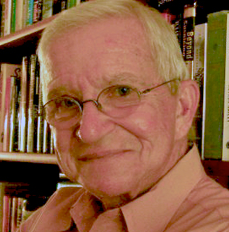Columbia College | Columbia University in the City of New York
Dan Wakefield ’55, Novelist, Journalist and Screenwriter
Wakefield gained acclaim for Going All the Way, his 1970 novel that was nominated for a National Book Award about two Korean War veterans who return to their hometown of Indianapolis and are unhappy with what they find there. He also wrote the screenplay for the 1997 film that starred Ben Affleck. In 1973, Wakefield wrote the novel Starting Over, about a divorced man who reenters the dating scene, and co-wrote with James L. Brooks the screenplay for the 1979 film that starred Burt Reynolds.
Born on May 21, 1932, in Indianapolis, Wakefield began writing for the newspaper at Shortridge H.S., the same school that author and friend Kurt Vonnegut had attended a decade earlier. After majoring in English at the College, Wakefield contributed articles to Esquire, The Nation, Playboy, Commentary, The New York Times Magazine and other publications.
When he was 23, The Nation sent Wakefield to Mississippi to cover the Emmett Till murder trial, one of the major events of the civil rights movement. After an all-white jury acquitted the white men accused of brutally killing the 14-year-old Till, Wakefield wrote, “The crowds are gone and this Delta town is back to its silent, solid life that is based on cotton and the proposition that a whole race of men was created to pick it.”
Wakefield’s first book, Island in the City: The World of Spanish Harlem (1959), was an account of the six months he spent living in Manhattan’s Puerto Rican neighborhood. Also among his more than 20 books were Home Free (1977), about a man traveling cross country in the countercultural America of the 1960s; Under the Apple Tree (1982), a coming-of-age tale set in small-town Illinois during WWII; and Selling Out (1985), about a college professor and writer who goes to Hollywood to write a television series.
His own television experience was brief. In 1977 Wakefield created James at 15, a drama about the life of a teenage boy, for NBC, but he resigned months into its first season after a dispute with the network over an episode in which the protagonist loses his virginity. Shortly afterward, the series was canceled.
Wakefield also chronicled his spiritual arc. After receiving a Baptist baptism and growing up as a Christian, he became an atheist in college and then returned to church in 1980 for a Christmas Eve service at a Unitarian-Universalist denomination. His writings on the topic include the books Returning: A Spiritual Journey and Creating from The Spirit. In his later life Wakefield led workshops on spirituality at churches, synagogues, adult education centers and Sing Sing Correctional Facility.
Although he lived in Miami for much of his adult life, where he was writer in residence at Florida International University for 17 years, Wakefield maintained a connection to his native Indianapolis through its Kurt Vonnegut Museum and Library, where he was an honorary Board of Directors member. The museum’s founder and CEO, Julia Whitehead, sent an email following Wakefield’s death to the facility’s supporters in which she wrote:
“Through Dan’s novels, essays, and journalism, he captured the essence of life’s complexities, inviting us to explore the depths of the human condition with honesty and authenticity … Dan made a difference. He was generous with his time. He was passionate about civil rights. He was a compassionate teacher. He was passionate about family and friends. He was part of Kurt’s extended family and our extended family.”
Wakefield’s marriage to Alice Jokela Stewart ended in divorce. No immediate family members survive. He had a strong paternal relationship with his goddaughter, Karina Corrales, whose mother took a writing class with him in Miami, and he spent time with her and her husband toward the end of his life.
— Alex Sachare ’71
Issue Contents
Published three times a year by Columbia College for alumni, students, faculty, parents and friends.
Columbia Alumni Center
622 W. 113th St., MC 4530, 6th Fl.
New York, NY 10025
212-851-7852
cct@columbia.edu
Columbia Alumni Center
622 W. 113th St., MC 4530, 4th Fl.
New York, NY 10025
212-851-7488
ccalumni@columbia.edu


